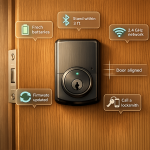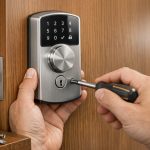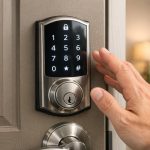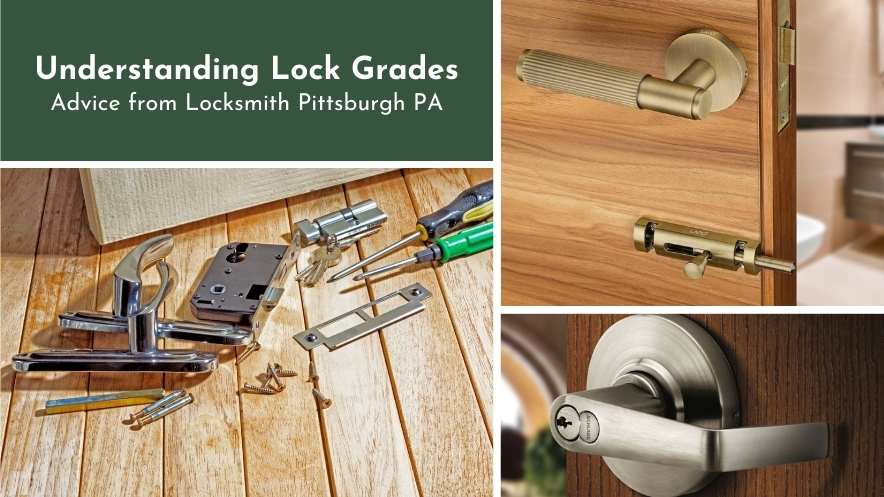Choosing the right lock for your property is not as simple as picking one that looks good or fits your budget. There’s a crucial factor that often goes unnoticed: lock grades. A lock’s grade determines its security, durability, and resistance to tampering. Whether you’re securing your home, business, or vehicle, understanding these grades is essential for ensuring you get the protection you need. As experienced locksmiths Pittsburgh PA, we’ve put together this guide to help you navigate lock grades and make informed decisions about your property’s security.
What is a Lock Grade?
Lock grades refer to a classification system that defines a lock’s quality, durability, and security level. These grades are established by organizations like the American National Standards Institute (ANSI) and are intended to guide consumers and a locksmith Pittsburgh PA in selecting the appropriate locking systems. The lock grade measures how secure and reliable a lock is, especially in preventing unauthorized access.
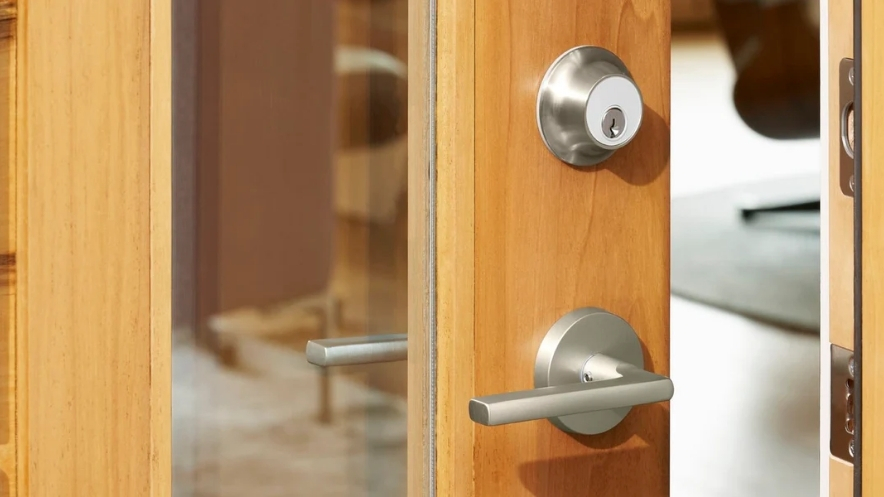
The Three-Lock Grades
ANSI uses a three-tiered grading system for locks. Each grade indicates the level of security a lock offers, and it’s important to select the right grade based on your security needs.
1. Grade 1 – Highest Security Grade 1 locks are designed for the highest level of protection or security. Such locks are typically used in commercial settings or entry doors requiring top-tier protection. They are built to withstand repeated use, forced entry, and tampering. Commercial lock replacement is often necessary when upgrading to Grade 1 locks in a business or commercial establishment to ensure maximum protection. Examples of Grade 1 locks include heavy-duty deadbolts, mortise locks, and electronic access systems.
Key features of Grade 1 locks:
- Resistance to forced entry
- Durability for high-traffic areas
- Suitable for commercial properties and high-security environments
2. Grade 2 – Mid-Level Security Grade 2 locks offer a balanced level of security, making them best for both residential and light commercial properties. They are often used on apartment doors or offices where high traffic is expected, but maximum security is not critical. These locks protect against unauthorized access, making them suitable for most standard residential and interior commercial doors.
Key features of Grade 2 locks:
- Adequate protection for homes and light commercial spaces
- Higher durability than Grade 3 locks
- Ideal for moderate security needs
3. Grade 3 – Basic Security Grade 3 locks are the most basic and affordable option. They are designed for low-security environments, such as interior doors or secondary locks. These locks are often found on residential doors not exposed to high traffic or extreme risks. While they are still effective at preventing entry, they do not offer the same level of protection as higher-grade locks.
Key features of Grade 3 locks:
- Basic security for interior doors
- Cost-effective option for non-critical areas
- Suitable for residential homes where security is less of a concern
Why Lock Grades Matter
The grade of a lock is essential because it helps determine the level of security a lock will provide. Knowing the distinctions between Grade 1, Grade 2, and Grade 3 locks will help you decide how much security your house or place of business needs. Below are some important reasons why lock grades should be considered:
- Security Needs: If you live in a high-crime area or run a business with valuable assets, a Grade 1 lock might be necessary to protect your property. For standard residential use, Grade 2 or Grade 3 locks may suffice.
- Durability: The higher the grade, the more durable and resistant the lock is to wear and tear. If your door sees frequent use, upgrading to a higher-grade lock can help avoid malfunction or failure.
- Cost vs. Protection: Grade 1 locks are the most secure and expensive. If your budget is a concern, a Grade 2 lock may offer a good balance of cost and security. It’s important to evaluate your security requirements against your budget.
- Insurance Considerations: Some insurance policies may require specific types of locks, especially for commercial properties. Verify with your insurance company that the locks you have selected satisfy their requirements for coverage.
If you’re unsure which lock grade is right for your property or require lock installation or replacement assistance, contact Sherlock’s Locksmith today. Our professional will guide you through the process and ensure your property is protected with the right security solutions.
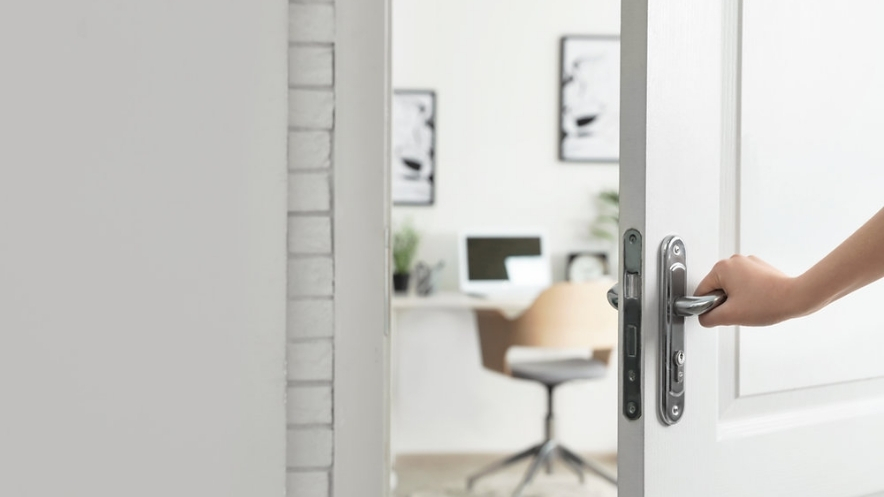
Choosing the Right Lock for Your Needs
Choosing the right lock for your property requires careful consideration of various factors. Let’s break it down into key points:
- Residential Properties: For your home, residential locksmith services can help you evaluate the best locks for your needs. A Grade 2 lock is typically a great choice for exterior doors in a residential setting, as it balances affordability and security. If you live in a neighborhood with a higher risk of break-ins, consider upgrading to Grade 1 locks for added protection.
- Commercial Properties: For businesses, especially those with valuable inventory or sensitive data, commercial lock replacement with Grade 1 locks should be a priority. These locks are engineered to withstand high-traffic environments and prevent unauthorized access to your office, warehouse, or retail space.
- Automotive Security: Locks are critical to protecting your vehicle from theft. Emergency automotive locksmith Pittsburgh PA can help with lock issues, whether a broken key, a malfunctioning lock, or rekeying your vehicle after a theft. Upgrading to higher-grade locks in your vehicle can also help prevent break-ins and offer peace of mind.
The Importance of Professional Locksmith Services
While you may have a general understanding of lock grades, it’s essential to consult a professional locksmith Pittsburgh PA, to ensure you select the best lock for your needs. A licensed locksmith can assess your property, identify security risks, and recommend the most suitable lock grade for your situation. Professional locksmiths are equipped with the knowledge and equipment necessary to install premium locks correctly, guaranteeing optimal security.
Sherlock’s Locksmith is also available if you’re having trouble with your car’s locks or need to upgrade to more secure locking mechanisms. Contact us today!
Conclusion
In conclusion, understanding lock grades is essential in securing your home, office, or vehicle. By knowing the difference between Grade 1, Grade 2, and Grade 3 locks, you can make an informed decision about the level of protection you need. Whether you need a lock replacement, repair or an emergency automotive locksmith, a professional Pittsburgh locksmith is the best resource for selecting and installing the appropriate lock for your needs.
FAQs
Q1. What is the best lock grade for my home?
For the majority of residential properties, a Grade 2 lock provides a fair compromise between cost and security. For greater security, nevertheless, if you reside in a neighborhood with a high crime rate, think about getting Grade 1 locks.
Q2. Can I install a higher-grade lock myself?
While it is possible to install locks yourself, it is recommended that you hire a professional locksmith Pittsburgh PA for optimal installation. This ensures the lock is correctly fitted and functioning as intended.
Q3. Do commercial properties need Grade 1 locks?
Yes, commercial properties with valuable assets, high foot traffic, or sensitive data should invest in Grade 1 locks for maximum security. They are designed to withstand frequent use and potential tampering.



